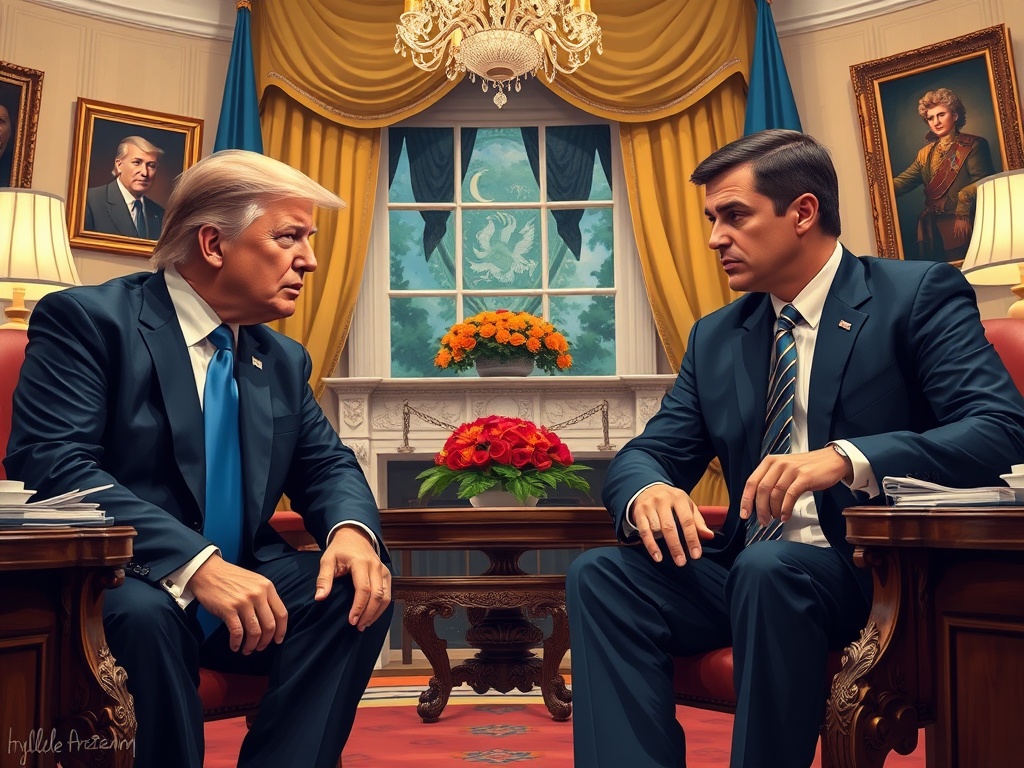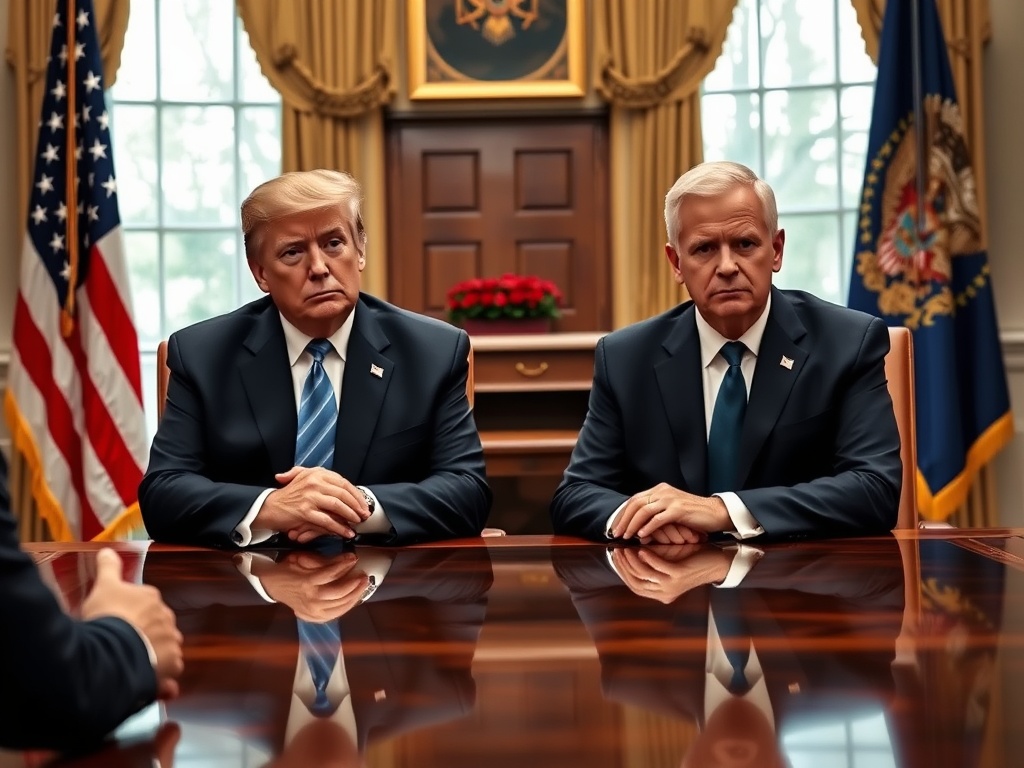Trump and Zelensky Clash at the White House
In a dramatic turn of events, former President Donald Trump accused Ukrainian President Volodymyr Zelensky of “gambling with World War Three” during a tense meeting at the White House. What began as a seemingly cordial discussion quickly escalated into a heated confrontation, resulting in Zelensky leaving without signing a critical agreement that would have granted the United States access to Ukraine’s mineral resources, essential for bolstering efforts against Russian aggression.
The friction surfaced notably after Trump’s Vice President, JD Vance, took issue with Zelensky’s skepticism regarding Russia’s sincerity in diplomatic negotiations. Vance chastised Zelensky, asserting that he was being “disrespectful” to the American administration.
The Tense Exchange
The 45-minute dialogue took a sharp turn when Vance intervened, visibly annoyed by Zelensky’s insistence that Russia could not be relied upon to uphold international agreements. “Mr. President, with all due respect, it is disrespectful to come to the Oval Office and litigate this in front of the media,” Vance remarked. He emphasized the current challenges Ukraine faced, noting, “Right now, you are conscripting soldiers to the front lines due to manpower shortages. You should be expressing gratitude to the president.”
As the discussion progressed, Zelensky suggested that the geographical distance between the United States and other global powers provided a measure of security. Trump, however, took offense at this remark, responding, “You are not in a favorable position. You do not hold the cards right now.”
Trump further intensified the rhetoric, stating, “You are gambling with the lives of millions of people. You are playing with the potential for World War Three, and what you are doing is incredibly disrespectful to this nation, which has supported you far more than many believe is warranted.”
A Call for Gratitude

In the final, tense moments of the meeting, both Trump and Vance repeatedly accused Zelensky of failing to adequately acknowledge the extensive military support the U.S. has provided. Trump claimed that the U.S. had contributed $300 billion (£238 billion) in military aid to Ukraine, although estimates from think tanks suggest the actual figure is closer to $100 billion (£79 billion).
- “Have you said ‘thank you’ even once during this meeting?” Vance pressed.
- Trump added, “You campaigned for the opposition in Pennsylvania last October. You should express appreciation for the United States and for the President who is striving to help your country.”
Zelensky, visibly exasperated, responded, “I have thanked the American people countless times.” Yet Trump insisted, “You need to be more thankful.”
The Meeting’s Conclusion
As the meeting drew to a close, Trump warned Zelensky that the U.S. might reconsider its support if no agreement was reached. “I have empowered you to be a strong leader, but I don’t believe you would be in such a position without the backing of the United States,” he said. “Your people are courageous, but you need to make a deal, or we will withdraw our support. If we do, you will have to manage the situation on your own, which may not end well for you. You are not acting grateful, and that is not right.”
Shortly thereafter, Zelensky departed the White House without finalizing the minerals agreement he had traveled to the U.S. to secure. This agreement would have allowed for a collaborative effort to develop Ukraine’s mineral wealth, with profits earmarked for a shared fund.
Originally, Zelensky was scheduled to have lunch with Trump, followed by a joint news conference to formalize their agreement. However, his armored vehicle was seen pulling away from the West Wing just moments after Trump made a contentious post on his social media platform, Truth Social. In his post, Trump stated, “I have determined that President Zelenskyy is not prepared for peace if America is involved, as he believes our involvement gives him a major advantage in negotiations. I do not want an advantage; I want peace.”
He concluded, “He can return when he is ready for peace.”




